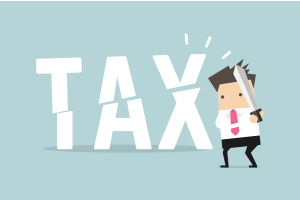 Minimize Tax or Maximize Value
Minimize Tax or Maximize Value
Posted Sun, May 26, 2019
As mentioned elsewhere in our website and book, we encourage people to focus on building wealth and if they can save taxes along the way, then that is just icing on the cake. What do we mean here? Often we see business owners who want to minimize their tax obligation rather than maximizing their business value, and this can be problematic in two areas; lending and selling.
Lending is more straightforward so we will tackle that first. If you are prone to pump a lot of personal expenses such as cars, computers, business trips that have a huge personal component, and other deductions through your business, your taxable income will be decreased. So, when the IRS shakes you down, you calmly say, “all these deductions have a business purpose and are considered ordinary and necessary.” Then you go visit the bank, and you calmly say to the lender, “all these deductions really aren’t business related and as such they shouldn’t affect my credit worthiness or ability to pay a loan.”
Can you see the pickle you are in between minimizing tax and maximizing value?
Selling a business is slightly different. To determine the value of a business, most valuations need to determine seller’s discretionary cash flow (SDCF) which is also considered the economic benefit. One technique is to start with taxable income, and make adjustments such as adding back interest expense, depreciation and amortization. Officer compensation and perquisites (the fancy word for perks) are also checked for reasonableness; so if personal expenses are being rifled through the business, these expenses are added back as well to increase SDCF. There are other adjustments as well but these are the biggies.
But it gets sticky again when the seller provides a general ledger of all his or her transactions, and starts highlighting a ton of stuff “reversing” tax deductions and reclassifying them as personal expenses. A few things here and there are fine, but if there are several material adjustments to SDCF at the request of the seller arguing that the expenses are truly a form of economic benefit to the seller (and future buyer) the credibility of the data starts to wane.
To recap, lenders want economic benefit to support debt service. Buyers want economic benefit because that is what he or she is essentially buying (future cash flow / economic benefit). As such, be careful how much you focus on minimizing tax versus maximizing value if you intend to leverage your business for lending purposes (even buying a house counts) or selling purposes.
Jason Watson, CPA, is the Managing Partner of WCG (formerly Watson CPA Group), a business consultation and tax preparation firm, and is the author of Taxpayer’s Comprehensive Guide on LLC’s and S Corps which is available online.

 Minimize Tax or Maximize Value
Minimize Tax or Maximize Value